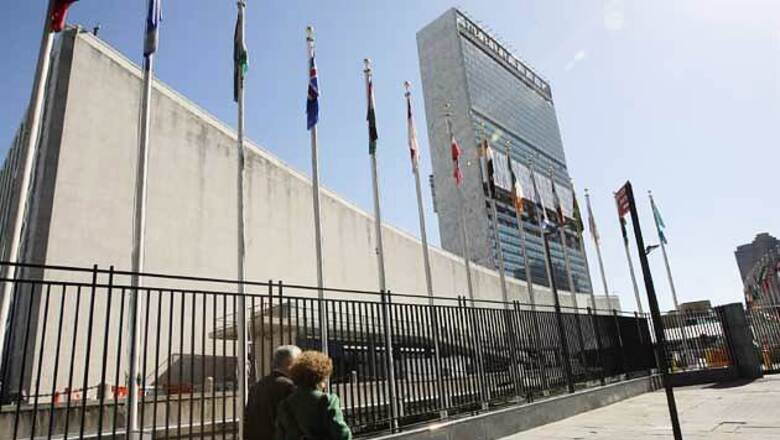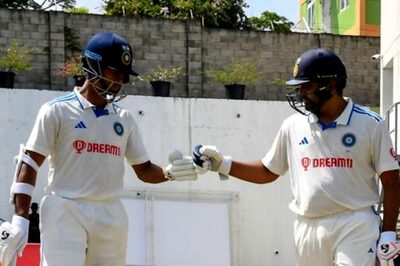
views
United Nations: The UN Security Council, under India's presidency, has imposed global sanctions against the dreaded Pakistan-based Haqqani militant network and the group's chief of suicide operations. The Council's Afghanistan/Taliban Sanctions Committee on Monday added the Haqqani group and Qari Zakir to its list of entities which face an assets freeze, travel ban and arms embargo.
The move comes the same day that the US State Department designated Zakir as a "global terrorist" and imposed financial sanctions against him. The UN committee said the Haqqani network, which has been responsible for suicide attacks and targeted assassination as well as kidnappings in Kabul, is linked to al-Qaeda, Tehrik-e Taliban Pakistan and Jaish-I-Mohammed.
On Zakir, it said the group's chief of suicide operations for the Haqqani network is in charge of all operations in Afghanistan's Kabul, Takhar, Kunduz and Baghlan Provinces. He oversees training of suicide attackers and provides instructions on how to construct improvised explosives devices. India assumed the rotating Presidency of the UN Security
Council for this month on Thursday.
The designation comes during Pakistan's current membership of the UN Security Council. The UN sanctions list now contains 131 individuals and three entities. Welcoming the move, US Permanent Representative to the UN Susan Rice said the UN Security Council action confirms the international community's resolve to end the Haqqani network's ability to execute violent attacks in Afghanistan. "It also reflects the Security Council's commitment to use and enforce sanctions against those who threaten peace in Afghanistan, in conjunction with a strong commitment to support Afghan-led peace and reconciliation," Rice said.
She said the "powerful worldwide sanctions" would put all UN member states under obligation to implement an asset freeze, travel ban, and arms embargo on the Haqqani network and Zakir. Zakir is an operational commander who has been involved in many of the Haqqani Network's highest-profile suicide attacks and has trained individuals to use small arms, heavy weapons and improvised explosive devices.
Personnel selected from Zakir's training programme attacked coalition force bases Salerno and Chapman in 2010, the Intercontinental Hotel in Kabul in June 2011, which killed 11 civilians and two Afghan policemen, and the US Embassy in Kabul in September 2011, which killed 16 Afghans, including at least six children.
The US State Department's designation of Zakir as global terrorist would prohibit US citizens from engaging in any transactions with him or to his benefit. The US had designated the Haqqani network as a foreign terrorist organisation in September.
Zakir had approached Haqqani network leader Sirajuddin Haqqani in 2008, requesting financial assistance in exchange for expanding the group's influence and operations into northern Afghanistan, and has become a trusted associate and confidant of Sirajuddin. He is also partially responsible for making some of the final determinations on whether or not to proceed with large-scale attacks planned by local district-level commanders.




















Comments
0 comment